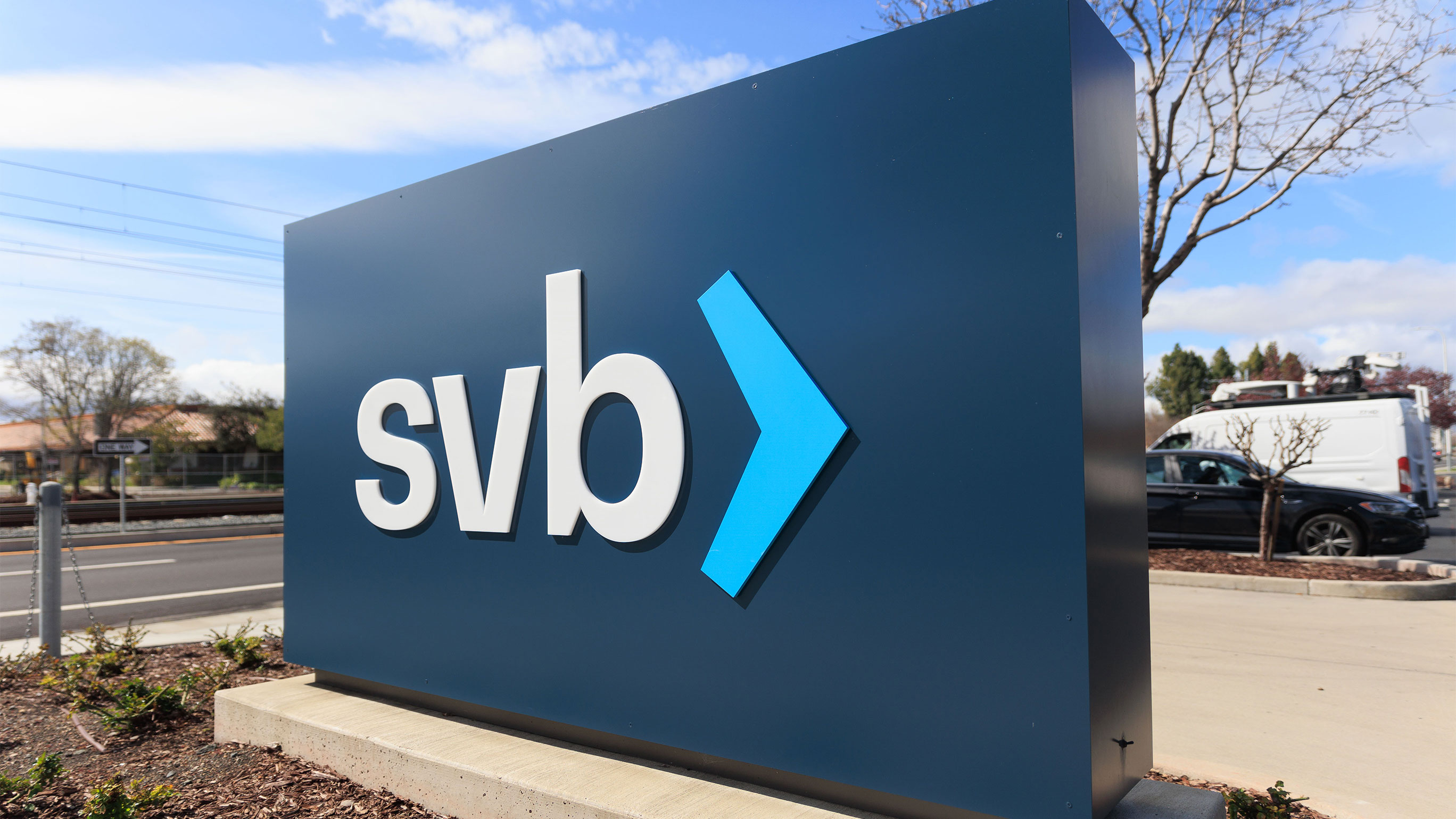Startups Yearly: The biggest startup stories from 2023
Welcome to Startups Weekly. Sign up here to get it in your inbox every Friday.
Thank you for subscribing to Startups Weekly. This week, I’m taking my parents to Yosemite to explore the snowy peaks and to see if my car can handle snow. In lieu of a regular Startups Weekly, I figured I’d dive in and give you a reminder of some of the biggest startup stories from 2024 — both on TechCrunch and our subscription sibling TechCrunch+.
Here are some of the biggest themes that have echoed throughout the startup ecosystem in 2023.
Crime and punishment

Image Credits: Bryce Durbin / TechCrunch
Some of the biggest startup stories on TechCrunch in 2023 were related to the deeds and misdeeds of those in the ecosystem.
By far one of our most-read stories this year was the murder of Bob Lee, best known as the creator of Cash App and former CTO of Square. He was tragically killed in a stabbing incident in San Francisco, in the otherwise usually quiet Financial District. Rolling Stone picked up the story from there, digging into who Bob Lee and his alleged murderer were.
The other big story was the trial of Theranos founder and CEO Elizabeth Holmes. She is now serving a prison sentence of 11 years and 3 months after being indicted for wire fraud in a scheme to defraud investors. Theranos, once valued at $10 billion, promised revolutionary blood testing technology but was exposed in 2015 for its nonfunctional technology, which posed health risks to patients. The subsequent unraveling of Theranos led to numerous lawsuits and government investigations. The case serves as a stark reminder of the consequences of fraudulent practices and that the “fake it till you make it” approach that can be prevalent among startups doesn’t always work out.
The other big “hmm, maybe you shouldn’t have done that” serial story of the year was the Sam Bankman-Fried trial, which extended over five weeks. It turned out to be a spectacle of evasion and memory lapses. The former CEO of FTX faced the jury for several days, delivering a testimony that was remarkable mostly for its lack of substance. When cross-examined by prosecutors about his past decisions and actions, Bankman-Fried’s responses were predominantly “Yup” (372 times), “Not sure” (117 times), and “I don’t remember” (73 times). He was found guilty on all seven charges of fraud and money laundering, and will be sentenced in March 2024. Around the same time, there will likely be a second trial, with a bunch of additional charges.
More from the courts and legal systems:
It’s not just the startups . . . : Former VC Mike Rothenberg, known for hosting extravagant parties, was convicted on 21 counts last month, including for bank fraud, false statements, money laundering, and wire fraud. The conviction brings his journey from a promising entrepreneur, launching a VC firm in 2013, to being a convicted fraudster to a close. He was originally charged with fraud by the SEC in 2018, which resulted him having to pay $31 million. Sentencing in the fraud case is scheduled for March.
I’m trying to reach you about your extended warranty: The FCC imposed a record $300 million fine on a robocaller operation for scamming people with fake auto warranty sales. This operation made at least 5 billion calls.
The Swiss army knife for hackers: Flipper Zero, a multi-tool hacking device, is on track to achieve $80 million in sales this year, a significant increase from its $25 million sales last year. Started in 2020, the device can manipulate various systems like garage openers and RFID card systems.
The fun and quirky

Image Credits: Brian Heater
The world of startups wasn’t just murders, fraud and shenanigans — some of our most-read stories this year were a lot more lighthearted, thank goodness.
One of the highlights was Apple’s 31 new emojis — including a shaking face for when you’re “shook” and a pink heart because, obviously, we need more heart colors. There are even two pushing hands that could mean “stop” or “high five” — because interpreting vague hand gestures is what we all needed more of. Want to spam your friends with a moose or a jellyfish? Apple had your back this year.
My other favorites in the more-or-less-quirky-news category:
[very recognizable drum riff]: MindGeek, the owner of adult entertainment sites such as Pornhub, Brazzers, and RedTube, was acquired by Canadian private equity firm Ethical Capital Partners. The terms of the deal were not disclosed.
Strap this computer to your face: Apple’s new mixed-reality (XR) device made a significant impact with its high-quality hardware and features. It boasts 24 million pixels across two panels and advanced optics. It has brand-new chips to ensure smooth performance without judder or frame drops, with accurate eye tracking and gesture control. Panzer tried it out, and I argued that the device would be a game-changer for startups operating in the space.
We’re getting a little bored of Elon’s antics: At some point, TechCrunch editor Darrell decided he had enough, and penned this piece — concluding that enough is enough.
The year of AI

Image Credits: Darrell Etherington with files from Getty under license
There can be little doubt that, above all, for better and for worse, 2023 was the year of AI.
OpenAI was on everybody’s lips. The company made GPT-4 universally available, which got everyone hella excited. It also gave ChatGPT the ability to browse the broader internet, which unlocked a world of functionality and excitement.
The darker side of AI got its time in the limelight as well. The advancement of AI porn generators, such as Unstable Diffusion, has raised significant ethical and societal concerns. These generators, which have improved in creating more realistic and diverse images, are posing some new risks — and continues to make the internet more toxic, especially for women (the majority of deepfake pornography targets women and is often used as a tool for harassment). We were also successful in tricking Lensa into generating NSFW content by putting crudely photoshopped photos into its source material. In short: maybe deepfakes-for-all is worse than we thought.
Another big AI drama story of the year was Sam Altman getting fired as OpenAI’s CEO. We put together a whole timeline, because, goodness, that was quite the saga.
From the desk of “didn’t see that coming”

Image Credits: Nikolas Liepins/Anadolu Agency / Getty Images
If there’s one thing startups love doing, it’s throwing curveballs. This year was no exception, and here are a handful of the most surprising ones:
A banking collapse: Everything was fine one moment, then suddenly one of the biggest startup banks — Silicon Valley Bank, or SVB among friends — took a nosedive. We put together a timeline of what happened, along with a wall of coverage and analysis. Venture debt was one of the big question marks post-collapse.
The DPReview saga: DPReview, a renowned digital camera review site, was shut down by Amazon after 25 years of operation, before Gear Patrol bought the property and revived it.
That submarine story: OceanGate trying to dip down to the Titanic and imploding in the process was everywhere for a hot moment. A whistleblower was fired in January 2018 after presenting a scathing quality-control report on the vessel to OceanGate’s senior management, including founder and CEO Stockton Rush — who later died onboard the submarine. We originally covered the company back in 2017 when it first revealed the plans to go 3D-scan the Titanic.
Is it a bird? Is it a balloon?: Pathfinder 1 is an electric airship that’s giving the Goodyear blimp a run for its money. At 124.5 meters long, it’s like the Hindenburg had a tech-savvy baby with a drone. With 12 electric motors and a penchant for helium (significantly safer than its high-explosive, Hindenburg-exploding hydrogen counterpart), it’s set to conquer the skies at a whopping 75 mph . . . eventually.
Round after round after round of layoffs: Woof.
The biggest hits from TC+
TechCrunch+ is TechCrunch’s subscription service, offering in-depth analysis, exclusive articles, and comprehensive reports on the technology industry, startups, and venture capital. If you’re not a subscriber — well, you should absolutely subscribe.
My popular Pitch Deck Teardown series is up to more than 75 sample pitch decks, complete with analysis for what’s working and what ain’t. And, of course, there’s oodles of additional amazing content too. Here’s a handful of stories you may have missed:
From cloud to on-premise: After a decade of cloud transformations, sophisticated enterprises are now developing hybrid strategies to support critical data science initiatives, moving away from exclusive reliance on cloud computing and bringing workloads back to on-premises systems.
The evolution of layoffs: Back in July, we looked at how the era of tech layoffs was evolving, noting that while it was not over, it was losing some of its intensity and was developing into its own unique trend.
Stage appropriate over perfection: Startups should focus on creating minimum viable products that are laser-focused on answering specific questions, rather than trying to scale too quickly, wasting resources in the process.
Hey, OpenAI, generate a marketing strategy: In this case study, we showed how using OpenAI for generating marketing strategies led to significant improvements in SEO ranking on Google, resulting in a substantial increase in site traffic, domain rating, and backlinks in less than a year.
Build on someone else’s tech and get burned: An update on OpenAI’s ChatGPT allowed for PDF uploads. That was a spanner in the work for startups, especially those built around a feature gap in ChatGPT. It underscored the vulnerability of such businesses to changes in underlying technologies.
Growth is hard: The former CEO of PlanGrid reflected on key mistakes they made while leading the company to $100 million in annual recurring revenue, offering insights to help other founders avoid similar pitfalls.
Setting the stage for a battery gold rush: Volkswagen’s breakthrough in lithium-ion battery technology could significantly impact the automotive industry, especially as it grapples with increased costs due to inflation and supply chain issues.
F you, pay me: If an investor tells you not to take a salary after you’ve raised VC funding, tell them to go do something anatomically strenuous.
The best laid plans of mice and men: We examine the evolution of fintech over the past decade, looking on several hyped fintech ideas that ultimately failed to transform the financial services industry as intended.
To remote or not to remote: We looked at the shift in remote work startups, where initial enthusiasm for dedicated remote work tools has waned, as companies have adapted to a hybrid work model rather than a purely remote one, leading to challenges for startups focused solely on remote work solutions.
Here’s why your pitch deck sucks: In the year of AI, I built a tool that analyzes startup pitch decks (because of course I did — why wouldn’t I build a tool that puts me out of business) and found a ton of interesting data about what startup founders get wrong when they create pitch decks.
Oh, and because I just know you are crazy curious: The featured image of this post was taken with an iPhone 14 Pro Max. I created the bauble using the Circular Name Ornament creator from Cuttle Labs, along with a Glowforge Aura. After I reviewed the entry-level laser cutter from Glowforge in July, I decided that I just had to have one. Because, well, what kind of nerd would I be if I didn’t set shit on fire on a semi-regular basis.
Happy New Year — see y’all in 2024!

